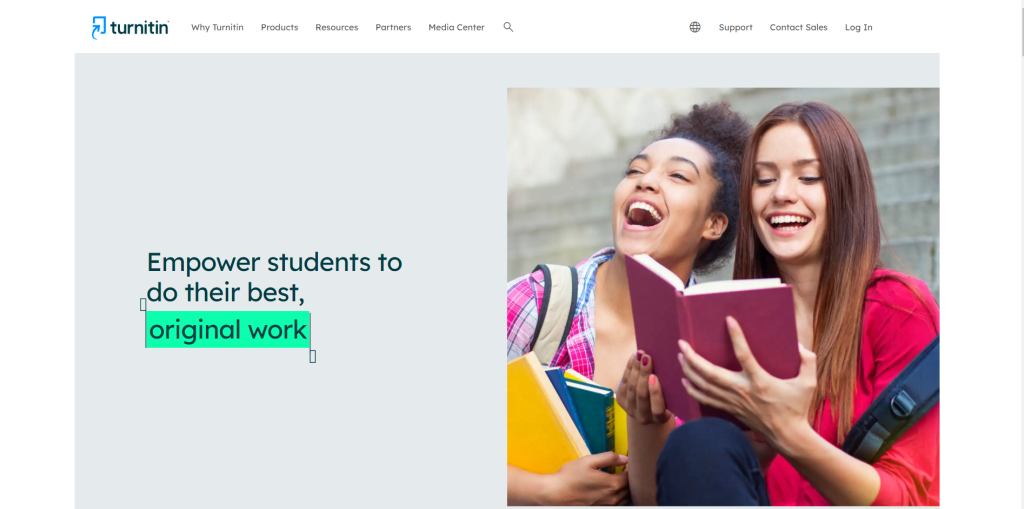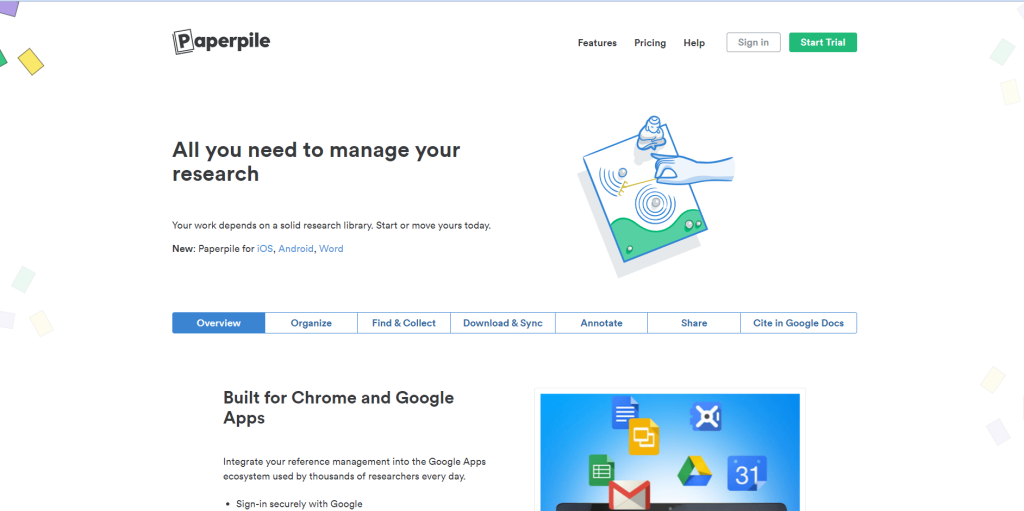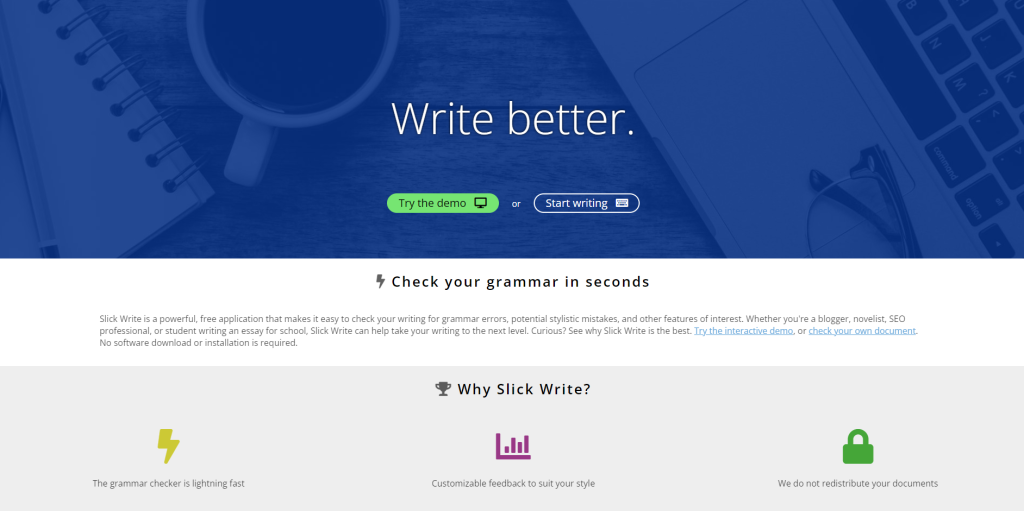Artificial Intelligence (AI) has transformed numerous industries, and academia is no exception. The integration of AI in academic writing has brought about a paradigm shift in how researchers, students, and educators approach the writing process. These innovative AI-powered tools leverage advanced algorithms and machine learning to streamline various aspects of academic writing, from research and data analysis to drafting, editing, and proofreading. In this comprehensive guide, we delve into the top 30 AI-driven academic writing tools that are revolutionizing scholarly communication and productivity.
Table of Contents
- 1.Grammarly
- 2.Turnitin
- 3.Scrivener
- 4.ProWritingAid
- 5.Zotero
- 6.EndNote
- 7.Mendeley
- 8.Paperpile
- 9.Citavi
- 10.Ref-N-Write
- 11.Ginger Software
- 12.Quetext
- 13.Microsoft Academic
- 14.Writefull
- 15.Scribbr Plagiarism Checker
- 16.Copyscape
- 17.AI Writer
- 18.Hemingway Editor
- 19.ReadCube Papers
- 20.Academic Phrasebank
- 21.Citation Machine
- 22.Manuscripts
- 23.Academist Help
- 24.Plagscan
- 25.BibMe
- 26.Slick Write
- 27.RefMe
- 28.PERRLA
- 29.Writer’s Aid
- 30.Academia.edu
- Wrapping up
1.Grammarly
Grammarly is a comprehensive writing assistant that utilizes AI algorithms to check grammar, punctuation, and style. It provides real-time suggestions to enhance writing clarity, coherence, and correctness, making it an indispensable tool for academic writers striving for polished and professional writing.
2.Turnitin

Turnitin is a leading plagiarism detection tool that employs AI to compare written content against a vast database of academic and online sources. It generates similarity reports that highlight potential instances of plagiarism, helping researchers and educators ensure the originality and integrity of their work.
3.Scrivener
Scrivener is a powerful writing tool designed for long and complex documents such as academic papers, theses, and dissertations. While not AI-based, its organizational features, outlining capabilities, and manuscript management tools make it a favorite among academics for structuring and managing large writing projects.
4.ProWritingAid
ProWritingAid offers a suite of writing analysis tools powered by AI algorithms. It provides grammar and style suggestions, checks for readability issues, and offers improvements in sentence structure and vocabulary usage, helping academic writers refine their writing with precision.
5.Zotero
Zotero is a robust reference management tool that integrates seamlessly with web browsers and word processors. It allows researchers to collect, organize, and cite sources effortlessly, streamlining the research and writing workflow and ensuring accurate and consistent citations in academic papers.
6.EndNote
EndNote is another popular reference management software that helps researchers manage bibliographic data and citations. Its AI-powered features automate the process of generating bibliographies, managing references, and collaborating with peers, enhancing productivity and accuracy in academic writing projects.
7.Mendeley
Mendeley combines reference management with social networking features, creating a collaborative platform for researchers. Its AI capabilities help users discover relevant literature, organize references, and connect with peers and experts in their respective fields, fostering academic collaboration and knowledge sharing.
8.Paperpile

Paperpile is a reference management tool integrated with Google Docs, offering seamless citation and referencing capabilities. Its AI-driven features simplify the process of inserting citations, managing bibliographies, and collaborating on academic documents, making it a valuable tool for collaborative writing projects.
9.Citavi
Citavi is a comprehensive research and reference management tool that supports various academic tasks, from literature search to citation management and project organization. Its AI-powered literature search and citation features help researchers save time, stay organized, and produce well-referenced academic papers.
10.Ref-N-Write
Ref-N-Write is specifically designed for academic and scientific writing, offering a range of AI-driven writing assistance features. It provides vocabulary suggestions, writing templates, and phrase suggestions tailored for academic writing contexts, aiding researchers in expressing their ideas clearly and effectively.
11.Ginger Software
Ginger Software is a writing and grammar checker that uses AI algorithms to improve writing quality. It offers grammar checking, sentence rephrasing, and translation services, benefiting non-native English speakers and helping users enhance the clarity and correctness of their academic writing.
12.Quetext
Quetext is a plagiarism detection tool that employs AI to scan written content for potential plagiarism. Its comprehensive scanning capabilities and detailed reports help researchers and educators ensure the originality of their work and maintain academic integrity.
13.Microsoft Academic
Microsoft Academic is a research tool powered by AI that helps scholars discover relevant publications, track citations, and explore academic trends. Its AI-driven recommendations and analytics assist researchers in staying updated with the latest developments in their fields and enhancing their research productivity.
14.Writefull
Writefull is an AI-powered writing feedback tool that provides real-time suggestions on writing style, language usage, and academic vocabulary. It integrates with word processors, offering writers insights and improvements to enhance the overall quality of their academic writing.
15.Scribbr Plagiarism Checker
Scribbr’s AI-powered plagiarism checker is designed specifically for academic documents. It detects potential plagiarism, generates detailed reports, and provides suggestions to improve originality, helping researchers and students uphold academic integrity in their writing.
16.Copyscape
Copyscape is a web-based plagiarism detection tool that uses AI algorithms to scan content for duplication across the internet. Its comprehensive scanning capabilities and detailed reports help users identify and address instances of plagiarism, ensuring originality in academic writing.
17.AI Writer
AI Writer is a content generation tool that uses natural language processing (NLP) algorithms to assist users in generating ideas, outlines, and drafts for academic writing projects. Its AI-driven features help users overcome writer’s block and organize their thoughts effectively.
18.Hemingway Editor
Hemingway Editor is a writing tool that analyzes text for readability and clarity. It highlights complex sentences, passive voice usage, and readability issues, providing suggestions to improve the overall quality and readability of academic writing.
19.ReadCube Papers
ReadCube Papers combines reference management with PDF annotation and discovery tools. Its AI-powered features enhance research productivity by organizing and annotating research materials, facilitating collaboration, and providing insights into scholarly literature.
20.Academic Phrasebank
Academic Phrasebank provides a collection of academic phrases and expressions suitable for scholarly writing. Its AI-driven features help users craft cohesive and professional texts by offering relevant phrases and expressions tailored for academic contexts.
21.Citation Machine
Citation Machine is an AI-powered citation generator that creates accurate citations in various citation styles. Its user-friendly interface and automated citation generation save time and ensure citation consistency for researchers and students.
22.Manuscripts
Manuscripts is a writing tool designed for academic authors that offers collaborative features, reference management, and manuscript formatting assistance. Its AI-guided formatting tools help users adhere to specific academic writing styles and standards, enhancing the presentation and readability of academic papers.
23.Academist Help
Academist Help is a platform that connects students with academic experts and AI-driven writing tools for research assistance, writing support, and editing services. Its AI-powered features assist students in improving their writing skills, enhancing the quality of their academic work, and meeting academic standards.
24.Plagscan
Plagscan is a plagiarism detection tool that uses AI algorithms to detect plagiarism in academic papers. Its detailed similarity reports and comprehensive scanning capabilities help users identify and address instances of plagiarism, ensuring academic integrity and originality.
25.BibMe
BibMe is an AI-powered citation tool that generates citations and bibliographies in multiple formats. Its intuitive interface and automated citation generation save researchers and students time, ensuring accurate and properly formatted citations in academic papers.
26.Slick Write

Slick Write offers in-depth writing analysis powered by AI algorithms. It provides grammar checking, style improvements, and readability assessments, helping users refine their writing skills and produce high-quality academic content.
27.RefMe
RefMe is a reference management tool that integrates with mobile devices, allowing users to scan book barcodes and generate citations on the go using AI technology. Its user-friendly interface and AI-powered citation features simplify the citation process for researchers and students, promoting citation accuracy and consistency.
28.PERRLA
PERRLA is a formatting and citation tool designed for APA and MLA styles. Its AI-guided formatting assistance, templates, and examples help users adhere to specific citation styles and standards, ensuring the accuracy and consistency of citations in academic papers.
29.Writer’s Aid
Writer’s Aid is a comprehensive writing assistant tool that provides grammar checking, vocabulary enhancement, and writing suggestions tailored for academic and research writing. Its AI-driven features help users improve their writing skills, enhance clarity and coherence, and produce high-quality academic content.
30.Academia.edu
Academia.edu is a platform for sharing research papers and connecting with scholars globally. Its AI-powered features recommend relevant papers based on user interests and activity, fostering academic collaboration and knowledge exchange among researchers and scholars.
I can guide you through the process of logging in to Academia.edu:
Visit Academia.edu Website:
In the address bar of your web browser, type www.academia.edu and press Enter. This will take you to the Academia.edu homepage.
Locate the Login Section:
On the Academia.edu homepage, look for the login section. Usually, you’ll find it at the top right corner of the page. It may say “Log In” or have options to sign in with Google, Facebook, or an email address.
Choose Your Login Method:
Academia.edu offers multiple ways to log in. You can log in using your Google account, Facebook account, or by entering your email address and password.
Log In with Google or Facebook:
If you prefer to use your Google or Facebook account to log in, simply click on the respective button (e.g., “Log in with Google” or “Log in with Facebook”). You’ll be redirected to a Google/Facebook login page where you’ll need to enter your credentials and grant permission to Academia.edu to access your account information.
Log In with Email and Password:
If you want to log in using your email and password:
- Enter your registered email address in the provided field.
- Enter your password in the password field. Make sure it’s the correct password associated with your Academia.edu account.
Once you’ve entered your email and password, click on the “Log In” button or similar option.
Complete the Login Process:
After entering your credentials or choosing your preferred login method, follow any additional on-screen instructions if prompted. This might include verifying your email address or agreeing to terms and conditions.
Access Your Account:
Upon successful login, you should be redirected to your Academia.edu account dashboard or profile page. From there, you can access your saved papers, connect with other researchers, explore content, and manage your account settings.
This guide can help you to log in to many academic writing tools.
Wrapping up
These innovative AI-driven academic writing tools encompass a wide range of functionalities, from grammar checking and plagiarism detection to reference management, citation generation, and writing assistance. By leveraging the power of AI algorithms and machine learning, these tools empower researchers, students, and educators to enhance their writing quality, productivity, and academic outcomes. As AI technology continues to advance, we can expect further innovations in these tools, paving the way for more efficient, accurate, and impactful academic writing processes.
Andrej Fedek is the creator and the one-person owner of two blogs: InterCool Studio and CareersMomentum. As an experienced marketer, he is driven by turning leads into customers with White Hat SEO techniques. Besides being a boss, he is a real team player with a great sense of equality.
